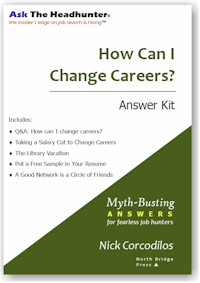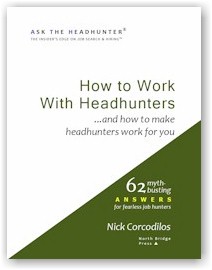In the February 28, 2012 Ask The Headhunter Newsletter, a manager loses a “star” employee and asks how to hire — but the manager cannot interview candidates in person:
A star employee left my team and I need to replace him. I can recruit only from inside the company, which has over 100,000 staff, so it’s not so much of a limitation. More of a limitation is that I will never get to meet candidates face-to-face before I hire anyone because I most likely will be recruiting people in another country. I love all of your advice about candidates showing how they can do the job in their interview, but how can I turn that around as a manager so that I can get the best possible candidates?
In recruiting the original star employee I used your advice and had my short list of candidates present a piece of work to me, similar to what they would be required to do in the job, and from there I picked the ones I wanted to interview. The star candidate made the best impression in the face-to-face interview (which I was able to do then) and I hired him because he approached the interview the way I needed him to approach the job. This method obviously worked, because I got a star employee.
These techniques are so much harder to do when there’s no interview in person, and you have no idea who might have helped candidates put together the piece of work that they turn in. Do you have any tips?
Finally, I can’t obtain reference information about applicants who haven’t told their boss or co-workers they are applying for another job. If I start asking around about them in a division I don’t work in, it can cause a nasty situation. How would you suggest getting sound information about the candidates’ reputations without creating an internal HR nightmare?
Here’s the short version of my advice: (For the entire column, you need to subscribe to the free newsletter. Don’t miss another edition!)
My Advice
First, thanks for confirming that asking candidates to “do the job to win the job” is a very effective way to hire — and stars, no less! (See the Readers’ Comments section of the newsletter, at upper right, for another confirmation that this works nicely.)
You seem to be facing two problems:
- In-person interviews are not possible, and
- You can’t check references.
More important, you know that meeting candidates face to face — and asking them to show how they’d do the work right there in front of you — pays off handsomely, because that’s how you hired your last star.
Your real challenge isn’t how to hire in spite of the two problems. It’s how to overcome them. Hiring in spite of those two problems could be disastrous. The reference problem is probably insurmountable because it could create a lot of trouble for you and for anyone you investigate. You’d probably also be violating company policy.
The first problem is one that I think you have to tackle and solve.
Find a way to meet your candidates. Explain to your management that the cost of hiring the wrong person could be staggering. The cost of bringing candidates in for meetings might be significant, but is not staggering. It’s a very wise investment. Do all you can to minimize that cost — but I would go out of my way to make in-person interviews happen. Hiring remotely is just too risky for the company, for you, and for the candidates.
I would nonetheless mention the reference problem to your boss…
… Sorry, this part of my advice is available only in the newsletter… Don’t miss another edition! Subscribe to the weekly newsletter now! It’s FREE!)…
Sometimes we must remember that our bosses pay us to tell them the truth, even if they don’t want to hear it. I would not risk hiring sight unseen. Your job is to tell your boss the truth. Explain the potentially huge cost of making the wrong hire in the interest of saving a few dollars on travel.
Finally, I would outline to your boss the Ask The Headhunter methods you use when you interview. Demonstrate how you will apply the extra investment. Your boss will see that you hire for the bottom line: You want to see your candidates perform before you hire them. Your department will be more successful. The candidate is far more likely to be successful. Your boss will be very happy. You might get a raise later for thinking so strategically. And I’ll be proud.
Have you ever hired anyone — or been hired — without an in-person interview? More significantly, have you ever been in an interview — as the employer or the candidate — where “doing the job in the interview” was required? How did you handle either situation?
: :













 Please share your questions, problems and challenges, and I’ll do my best to help, right here on the blog, and in next year’s newsletters. I welcome you to pile on — please tell me where I can help!
Please share your questions, problems and challenges, and I’ll do my best to help, right here on the blog, and in next year’s newsletters. I welcome you to pile on — please tell me where I can help!